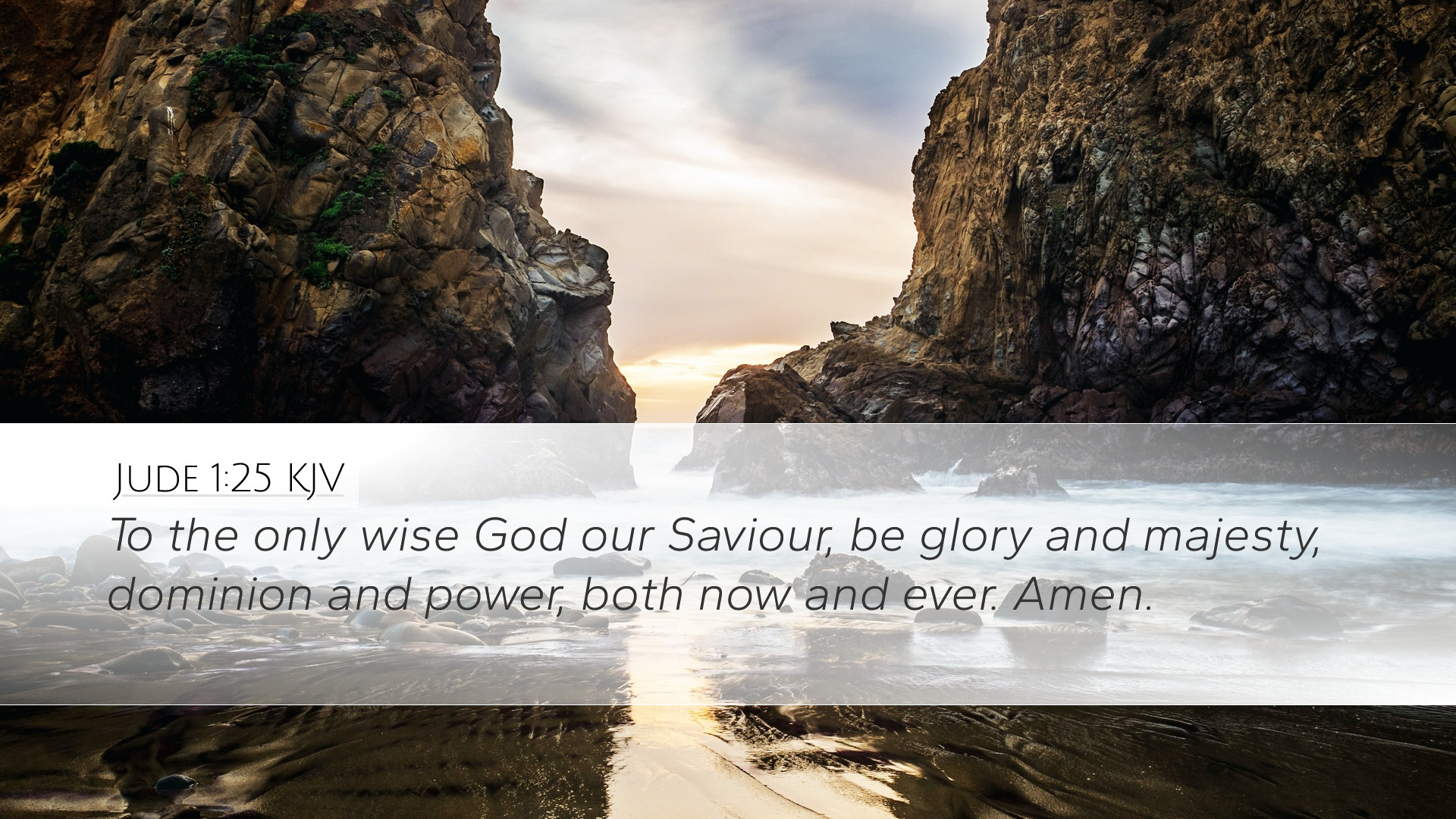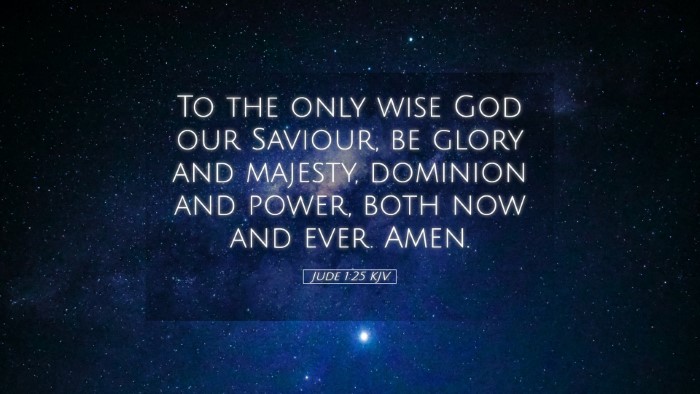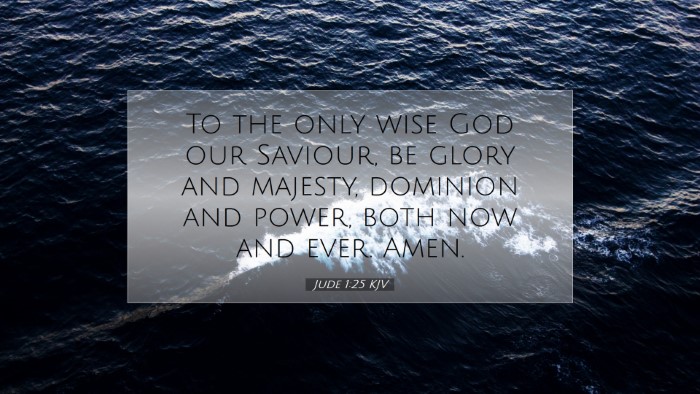Commentary on Jude 1:25
Verse Text: "To the only wise God our Savior, be glory and majesty, dominion and power, both now and ever. Amen."
Introduction
The book of Jude, though brief, encapsulates profound theological insights and serves as a potent reminder of God's sovereignty and the believer's duty to maintain the faith against adversaries. In verse 25, Jude concludes his epistle with a doxology that encapsulates the essence of Christian worship and the acknowledgment of God’s majesty and wisdom.
Exegesis of Jude 1:25
This verse is structured as a doxology, a short hymn of praises to God, which conveys several critical theological themes.
- God's Wisdom: Jude acknowledges God as the "only wise God," which emphasizes His unmatched wisdom in creation and redemption.
- Salvation: The term "our Savior" underlines the personal relationship believers have with God, emphasizing His roles in both creation and redemption.
- Attributes of God: The ascription of "glory and majesty, dominion and power" reminds the reader of God's sovereignty over all things and His supreme authority.
- Eternal Perspective: The phrase "both now and ever" indicates the timeless nature of God's glory and dominion, highlighting that these attributes are not confined to the present but extend into eternity.
Theological Insights
The theological reflections from various public domain commentaries provide depth to our understanding of this verse:
Matthew Henry’s Commentary
Matthew Henry emphasizes the importance of recognizing God's attributes, particularly His wisdom and power. He points out that the doxology serves both as a conclusion to Jude’s arguments against false teachers and as an encouragement to the faithful. Henry, through his insights, highlights that our ultimate hope and trust must be placed in God alone - the source of all wisdom.
Albert Barnes’ Notes on the Bible
Albert Barnes elaborates on the significance of acknowledging God as "the only wise God." He notes that this phrase is crucial in a world filled with competing philosophies and ideologies. Barnes highlights that God’s wisdom is displayed in His redemptive plan and His sovereignty in human affairs. His conclusion accentuates a call to worship, urging believers to respond with adoration and submission to God's supreme authority.
Adam Clarke’s Commentary
Adam Clarke's commentary focuses on the implications of God being both wise and powerful. He articulates that such attributes engender a sense of security and assurance in believers. Clarke stresses the significance of ascribing glory to God, particularly in the context of spiritual warfare against false teachings and moral decay. He suggests that this acknowledgment of God’s supremacy emboldens the believer to stand firm in their faith.
Practical Application
The doxology found in Jude 1:25 has several practical applications for believers:
- Worship: It serves as a reminder of the centrality of worship in the Christian life. Believers are called to glorify God not only in song but also in their actions and decisions.
- Faith in God's Wisdom: In times of uncertainty, Christians are encouraged to trust in God's wisdom rather than relying on their understanding. This verse fosters faith in God’s plans and purposes.
- Hope for Eternity: By recognizing God’s eternal dominion, believers can find comfort and hope amidst worldly trials, trusting that His reign extends beyond time.
- Defense Against Falsehood: Jude's context of battling false teachers reminds contemporary Christians of the necessity of knowing Scripture and being vigilant against misleading doctrines.
Conclusion
Jude 1:25 stands as a powerful affirmation of God's character, inviting believers to respond in worship and trust. The insights garnered from public domain commentaries underscore the richness of this verse, providing deeper understanding and encouraging faithful living. The exhortation to ascribe glory to God invites all believers—pastors, students, and scholars alike—to reflect on the greatness of God and the response He desires from those who worship Him.


